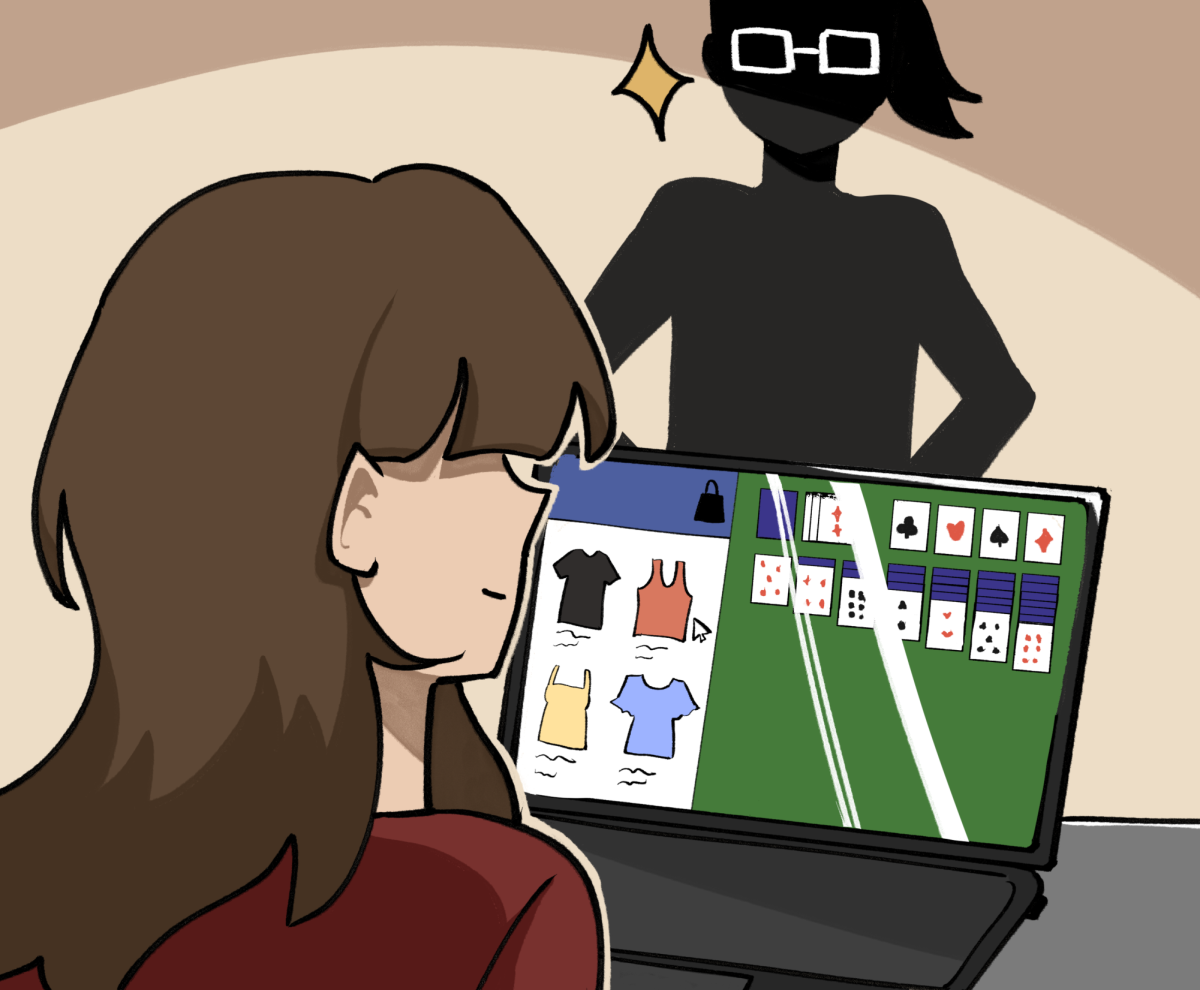The use of technology in classrooms has been on the rise since the early 2000s. However, there is still a push to reduce the use of electronics in the classroom at the university level, due to the distractions it may cause.
University professors are changing class policies to evolve the use of technology. Some professors at Seattle University have been leaning toward the use of older conventional means, such as notebooks.
Wai-Shun Hung, associate professor in the philosophy department, believes that using technology in his lectures is more of a distraction than a tool for success in notetaking. In the past, he’s attempted to implement technology in lectures; however, he has been met with less student engagement.
Hung has tried multiple techniques to allow the use of technology in the class outside of certain circumstances, such as disability services. However, he still had two major concerns. The first was the use of online materials; he found that students engage less with online materials, unlike physical copies, such as highlighting or writing notes on paper.
The second issue he noticed is that students retain information better using physical copies and notes instead of online material.
“Based on my experience of exams and papers, they [students] typically perform better when taking notes by hand. I’ve looked up some research, and I’ve shared those results with students to explain my policy, and it seems that student people can take more notes with keyboards. Because they type faster than they write, and the result is that they pay less attention. The typing process seems to require less attention than writing so it affects attention and retention,” Hung said.
Other professors agree with this reasoning. However, they approach it differently.
Thomas Mann, a visiting assistant teaching professor in the political science department at Seattle U, allows the use of technology in his class. He trusts that students who use their devices in lectures use them for educational procedures and that they gently benefit from it.
Mann believes students should be conscious of their decision to use technology in the classroom. He believes students have to make judgments for themselves when determining if using technology does help.
He talked about how students should learn to be more aware of their resources and how they impact their learning. Mann gives room for his students to make their own decisions and decide what is best for themselves.
“You are an adult, and much like this is why I don’t really have pop quizzes and things like that. Because I’m like if you don’t do the reading, fine. But you’re spending a lot of money to be in this classroom,” Mann said.
On top of the conscious use of technology in class, Mann talks about how we can use tech to be better workers; but not to think critically. Mann has talked about how artificial intelligence has proven to be more detrimental to higher education than beneficial.
A study Mann shared made by Microsoft and Carnegie Mellon University shows using artificial intelligence at work lowers workers’ cognitive effort. Workers felt more confident in their ability to use generative AI for tasks that require low critical thinking. He is against artificial intelligence as he believes that higher education is the place for students to learn and use active thinking.
Liesl Marshall, a fourth-year nursing major, talked about how she agrees with the studies released on how handwriting notes are better for retaining information. However, she prefers the use of her tablet as it contains OneNote, which is convenient for her note-taking.
Marshall would, however, face an issue with some professors who would have strict class policies for electronics.
“I have had one or two professors, particularly UCOR professors, who have been very against technology, like don’t take out your laptops kind of thing. You have to bring a notebook and take notes with a pen and pencil. Usually, when I approach them like, ‘Hey, is it ok if I handwrite it on an iPad?’ Sometimes they’re like, ‘Ok, but you have to sit in the front row, and I have to be able to see you when you’re using it,’” Marshall said.
Marshall also shared how the use of AI has helped her with her education in a more productive way. She uses AI more as a tool rather than a replacement for her work.
“I think people are using AI incorrectly. So, how I use AI personally in my nursing is, I will study the topic. I will take notes, and then I’ll put my study guide, and all my lectures into the AI, and then I will have it generate questions, practice exams, and kind of help me work through it that way. Like, give me case studies and stuff like that which I think is useful,” Marshall said.
The use of technology in classrooms, whether with note-taking or AI, seems to rely on student etiquette and established personal norms. These etiquettes depend on the ways the user uses their tools, either benefiting their education or deterring it.








